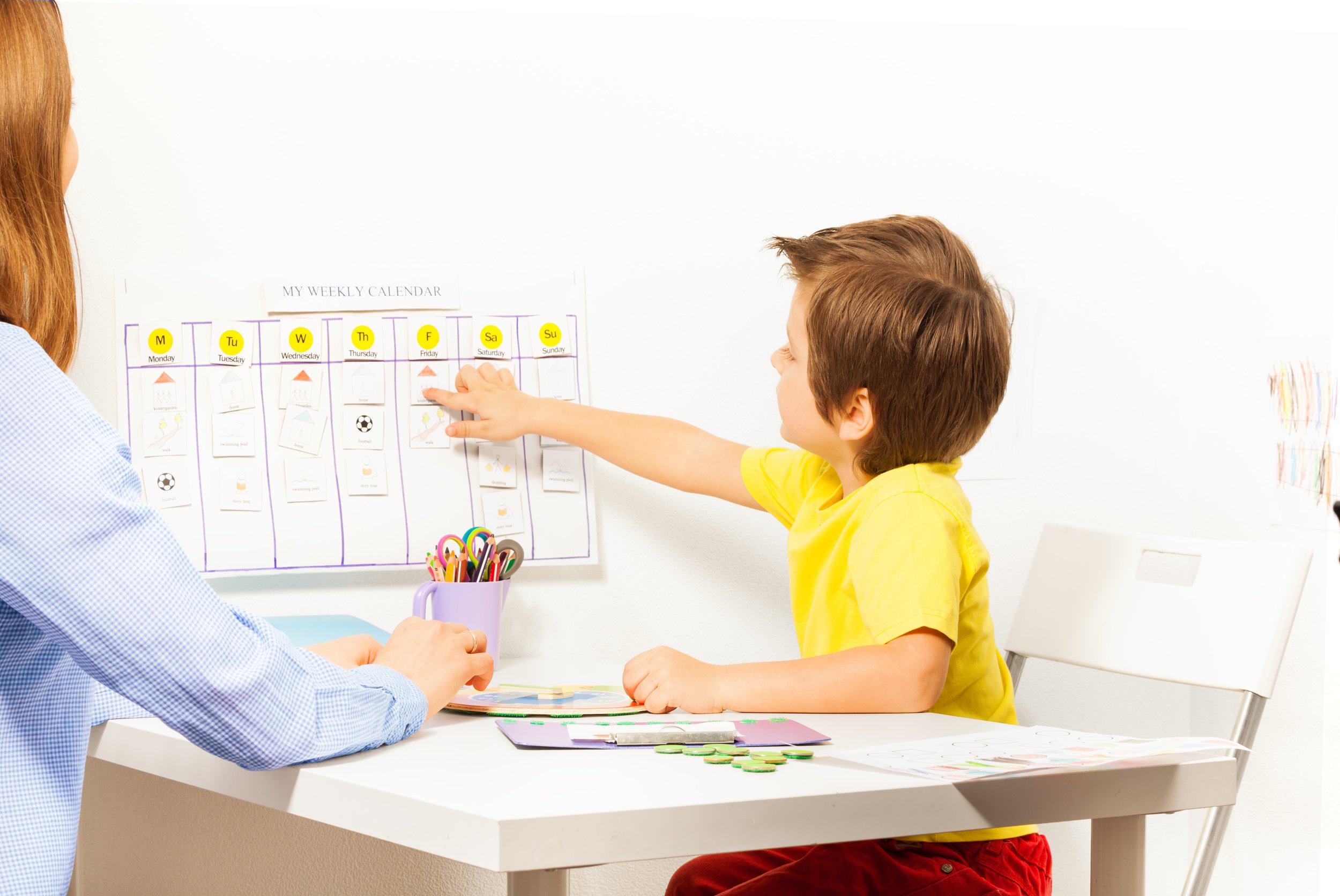How Can I Help My High School Procrastinator?
When procrastination is starting to get in the way of a student’s academic success, your support can make a big difference.

You asked: My 15-year-old has always been a procrastinator — he claims he needs the pressure of a deadline to inspire him. I’m sympathetic to that, but now that he’s in high school, waiting until the last minute means he’s turning in sloppy, unfinished work and projects. This is also the first year he’s taken an outside class for grades that “count” on his transcript, and it’s frustrating to see his work not reflecting his abilities. How can I help him stop putting work off until the last possible minute?
When it comes to procrastination, there are basically two kinds: functional and dysfunctional. It sounds like for a lot of his life your son has engaged in functional procrastination — he might put his work off until the last minute, but he’d get it done in the end by putting in a last-minute push. Now, though, he’s hitting high school, where longer —term planning is often required to get work done, and his procrastination has become dysfunctional. He might get the work done on time, but he’s not getting it done well. He knows what he needs to do, but he’s not able to push himself to do it. The work he’s doing has changed, but his method for dealing with it hasn’t—and if his procrastination goes unchecked, you’re right that he’s looking at a lower GPA than his intelligence level might indicate, not to mention increased stress levels and academic anxiety.
The great thing is that you’re recognizing that procrastination is a problem now, while the stakes are fairly low. In a few years, a procrastination habit could mean failing out of college, losing a job or blowing an internship, but right now you have a window when the cost of procrastination is high enough to motivate your student to make some changes but still low enough that he doesn’t have to shoulder major consequences.
The root of procrastination lies in our brain chemistry. People who procrastinate tend to believe that they must be in a good mood to tackle a task they consider uninteresting; when given a choice between two options, who wouldn’t choose the one that seems more fun? Most people will sigh, buckle down, and get to work anyway, but chronic procrastinators keep choosing Option B. For chronic procrastinators, short-term mood repair takes precedence: Chronic procrastinators want to eliminate the negative mood or emotions now, so they give in to feel good. They give in to the impulse to put off the task until another time, explains Tim Pychyl, procrastination researcher at Carleton University and the author of Solving the Procrastination Puzzle. The problem, says Pychyl, is that teens who procrastinate vastly overestimate how much motivation they actually need to do something. It may be hard to work up the motivation to write an entire essay, but you don’t need a lot of motivation to make a list of sources for an essay.
In other words, the key to beating procrastination is to break tasks down into parts so small and specific that your student can feel totally confident he’ll be able to succeed in them. The easiest way to do this is to help him figure out how to focus on time — say “let’s set the timer and work on this for just five minutes” — or task —“let’s do just this first math problem right now.”
So say your son has a biology quiz coming up on Friday. Usually, he’d wait until Thursday night and cram, but that’s not been working out so well for him. So instead, encourage him to try to do something small—review five biology terms or recopy his notes from chapter one. Or perhaps he has an essay due—he has a great idea but can’t seem to get motivated to start working until it’s late at night and he’s got to finish the whole thing in one big rush. Instead of trying to get him to sit down to finish the whole thing, encourage him to spend just 15 minutes writing the first body paragraph before dinner. Sometimes, he may be inspired to keep going once he’s started—sometimes just getting started lowers the bar enough for a procrastinator to complete a task. Sometimes, he may just do the discrete task he’s outlined. Either way, making the task specific, small, and concrete is the most effective way to help your son rewire his thinking about big projects.
Don’t expect long-term habits to change quickly. Your son may be totally committed to changing his habits and still need a lot of consistent help and support from you to make it happen. Procrastination can be hardest to combat in kids who have executive function or attention deficit issues, but patient persistence can make a big difference for all kids.
This Q&A was originally published in the fall 2018 issue of HSL.
When your marriage ends, homeschooling probably isn’t the first thing on your mind — but navigating a divorce while homeschooling can bring up unexpected issues.
Whether you live to color-code or need a system that flexes and changes with your family’s needs, keeping good homeschool records is essential. And you can do it — all you need is a system that you’ll actually use.
Aminata and Malcolm have discovered that a purposeful morning routine is the perfect start to their homeschool day.
A love of reading comes naturally for some kids and not-so-naturally for others, but you can do a lot to make your home a space where reading is an important part of everyday life.
When your homeschool starts to feel like more work than fun, it’s time to make a change.
If you’re homeschooling your middle schooler, you probably have a lot of questions. The good news: It’s going to be pretty exciting to navigate these big changes with your homeschooler.
Planning your homeschool year is about more than just making a weekly checklist or figuring out what to use for science. If you want your homeschool to grow with you and take your kids where they want to go, keeping these questions in mind can help you stay on track.
The best way to plan your homeschool year is the way that works best for your particular homeschool — and like all the rest of homeschooling, it may require some trial and error to find the right balance. That’s why our “perfect” planning method is adaptable as you need it to be: Use the skeleton to make a loose frame for the year, or go all out and plan every week in advance. It’s your homeschool. Make a plan that works for you.
A homeschool retreat can be inspiration, direction, and sanity saver all in one — and if you don’t have a secular homeschool conference nearby, you can create your own.
Chances are, you’re doing better with this whole homeschool thing than you think you are. These six signs are all indicators that you’re on the right track — and we think that’s something you should celebrate.
5 surprising ways to build a homeschool life that works for your whole family — including you. “If your homeschool isn’t giving you personal satisfaction most of the time, something needs to change.”
It’s easy to get so caught up in your everyday to-learn lists that you lose sight of the bigger picture of what you want your homeschool life to feel like.
Reinventing your homeschool is just part of the process, but this six-step process will help your homeschool grow in the ways that work best for your family.
Your official last day of school can be whenever you want—so pick a date that matches your family’s homeschool rhythm (or don’t pick a date and have a year-round homeschool).
The secret to transitioning to homeschooling high school isn't so secret: Just keep doing what you've been doing, and trust that you've gotten to know your kid's academic abilities.
College isn't the only post-high school option for homeschooled teens. Whether you're in search of an alternate path or a great gap year, here are some options for what's next.
This easy organization method won’t stress you out and will make your life a whole lot easier when you start working on transcripts and other official paperwork for high school graduation.
Planning out your year doesn’t have to be scary or stressful.
There are two keys to a successful homeschool: The first is figuring out what works for your family, and the second is knowing when your carefully figured out system needs to change.
One essential skill homeschoolers don’t always get to practice: Turning work in on time.
There’s no one right way to use all that reading you already do to help your kids absorb information, think critically, and start making connections, but here are six strategies to get you started.
How do you break up with your kid’s teacher?
When you get that stuck-in-a-rut feeling — and we all do sometimes — these simple-to-pull-off changes can make your homeschool feel bright and shiny again.
“We loved the idea of living without a schedule, but we quickly discovered that we were miserable living without a routine.”
This is my go-to recommendation for new homeschoolers — it's designed to help you find your rhythm, build comfort with leading your students’ learning, and keep the learning going as you find your way. It’s basically a six-month, low-cost-investment guide to starting homeschooling.
If you’re homeschooling to get through the world health crisis, you totally count as a homeschooler — but what you need may not be traditional homeschool recommendations.
We rounded up our readers' best tips to prepare for back-to-school.
Navigating big changes in your homeschool life can seem like a scary prospect, but you’ve got all the tools you need to make your next big transition feel as exciting as it is stressful. Here’s what you need to know.
A more rigorous homeschool involves pushing further and deeper across the curriculum.
Amy Sharony is the founder and editor-in-chief of home | school | life magazine. She's a pretty nice person until someone starts pluralizing things with apostrophes, but then all bets are off.































A creative learning space is less about actual stuff and more about giving your children space to explore ideas in different ways.